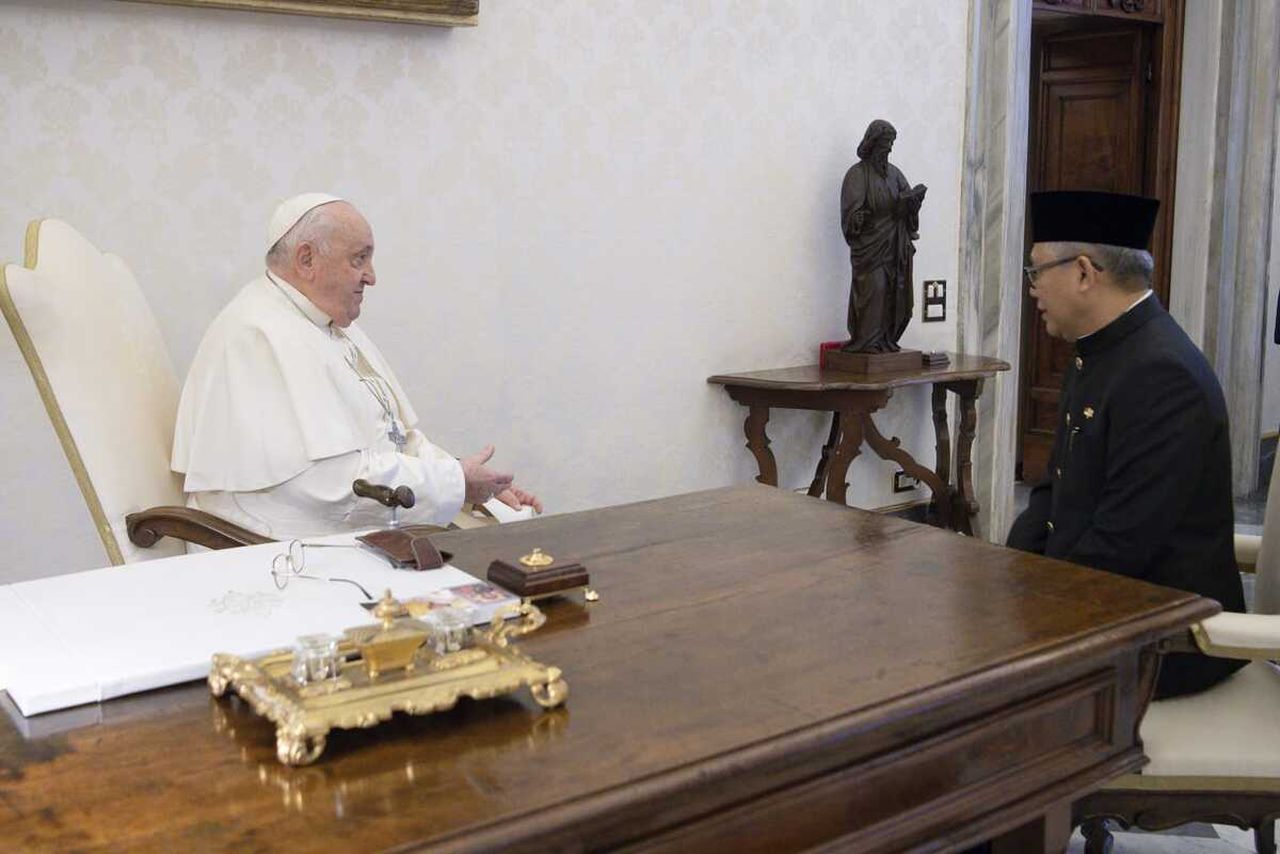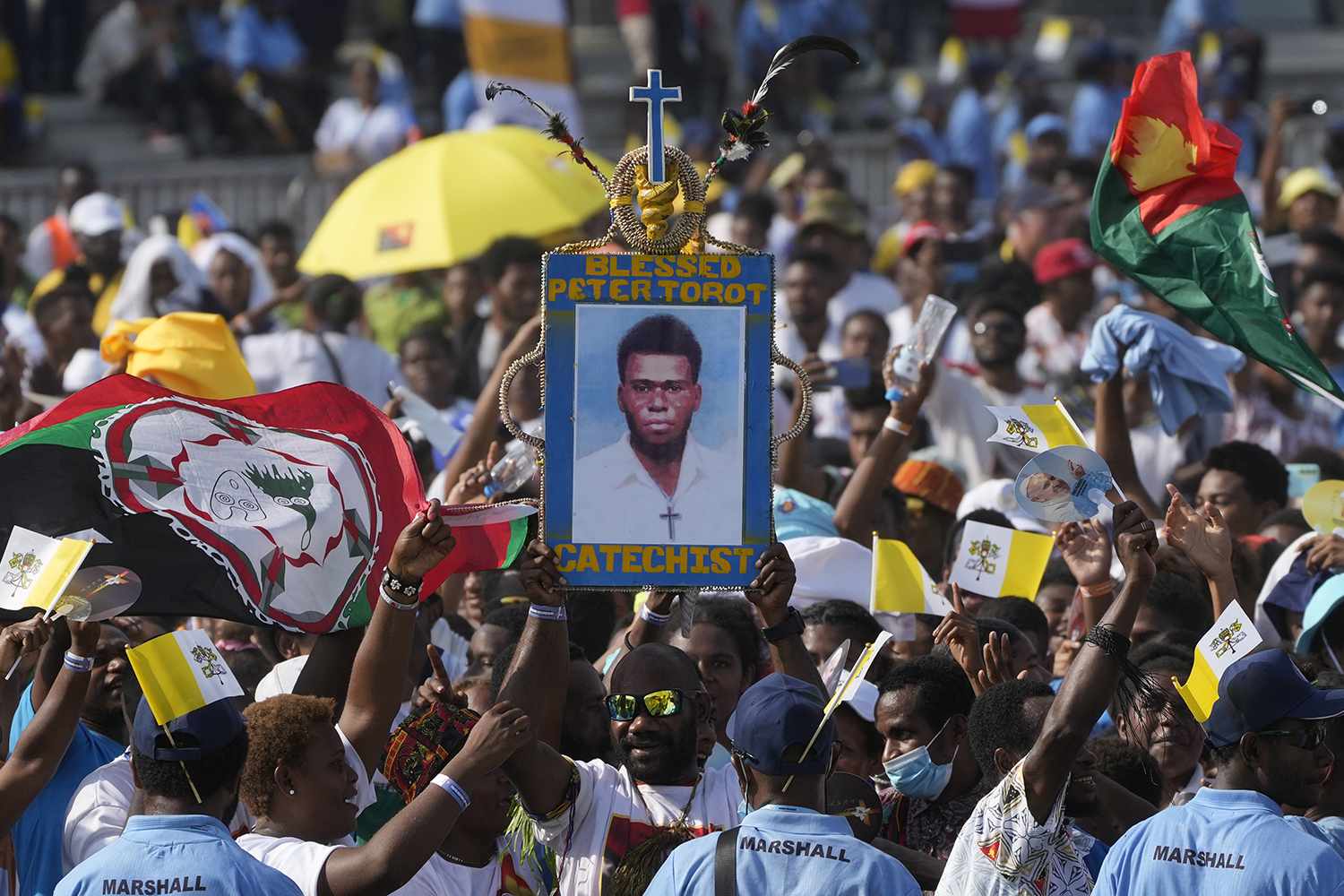Enthusiasm Surrounds Papal Visit To Indonesia’s Capital
Joaquim Magalhães de Castro
At 60 years of age, Father Justin Solistiadi, assistant parish priest of the parish of Saint John Mary Vianney, in the east of the Indonesian capital, is a living example of the enthusiasm evident among the Indonesian Catholic faithful in the weeks leading up to Pope Francis’ visit to Jakarta, which concludes today.
We are talking about a community of 7,000 souls well integrated into the social fabric of a city with an overwhelming Muslim majority, and with which they coexist peacefully. Father Solistiadi recalls that the joy experienced went beyond the “various ecclesial realities and the base communities of the parish and other churches”, and also reached the Muslim faithful. Some of them, older, remember well the visit of John Paul II, 35 years ago. For the younger ones, this now was a unique event; and there are even those among them who lament “such a short stay”: only three days in “such an immense country”.
During the weeks leading up to the papal visit, Father Justin tried to encourage, raise awareness and spiritually prepare his faithful for the important visit, in reality an essentially pastoral visit, although it also had “special significance for inter-religious relations”, as Cardinal Ignatius Suharyo, Archbishop of Jakarta, rightly observed.
In addition to the so-called “base communities”, the parish of Saint John Mary Vianney is home to various ecclesial movements that mobilised and actively participated in the activities related to the papal visit. These were: the “Culture of Life” group, inspired by the papal encyclical Evangelium vitae; the “Buona novella” missionary group; the “Adoremus” prayer group; the ‘Catholic Fellowship Jakarta’ (a group of believers who, after living abroad, celebrate their faith in English); and the ‘Icons of Indonesian Culture’, an association recognised by the Indonesian State that brings together people from different cultures and religions.
Father Justin Solistiadi has also set up a special committee of local journalists – Catholic and non-Catholic – to accompany media and social media professionals with the specific aim of highlighting the significance of the places the Pope has visited. For example, the visit to the Church of Our Lady of the Assumption (Jakarta Cathedral) and the Istiqlal Mosque, where the inter-religious meeting took place, is worth mentioning. Interestingly, the cathedral and the mosque are located opposite each other, and the events that took place there were highlights of Pope Francis’ programme.
Thanks to the help of his journalist friends, Father Justin has set up a new website with a twofold purpose: to raise awareness and encourage the faithful around Pope Francis’ visit; proclaiming the Gospel and promoting the values of the Church. Thus, the presence of Pope Francis served as an anticipation of the Jubilee of 2025. In addition, Justin, a specialist in social communication, was tasked with commenting on the papal mass at the national stadium broadcast by the television network Kompas TV.
Among the Indonesian media, the most important group in terms of audience and entrepreneurship is Kompas Gramedia, which has Catholic roots and still maintains values linked to Christianity. Six decades after its founding, Kompas Gramedia has become a multi-sector company, capable of expanding not only in the field of communication (TV, radio, press, digital universe), but also in other sectors, such as the publishing and bookselling sector, education (through universities and polytechnic institutes), the hotel market, organization of major events (such as the G20 or Moto GP), manufacturing, real estate, etc. In short, a corporation with almost 19,000 employees.
The frenzy surrounding Francis’ visit has also resulted in the proliferation of publications on the subject of the Supreme Pontiff and the Vatican in Bahasa Indonesia, such as the book by the vocationist priest Valentino Robi Lesak. Entitled ‘The Auspicious Words of Pope Francis’, this work compiles a selection of interventions, messages, homilies and speeches by Pope Francis on topics such as: fraternity, dialogue, human trafficking, migrants, care for the environment, etc. Two other books in Bahasa about the Pope were recently presented at the Catholic University of Atma Jaya: one of them, which includes texts by researchers, theologians and academics, is entitled Miserando atque eligendo, and, by evoking the Holy Father’s motto, explains, comments and modernizes various aspects of Francis’ teaching. The other book, entitled Salve peregrinans spei, is entirely written by Muslim academics and Muslim religious leaders who appreciate the words and actions of Pope Francis.
They recall that, especially by virtue of the encyclical letter Fratelli tutti and the Abu Dhabi Document, many Christians and Muslims promote respect, tolerance, peace and harmony within the society in which they live. In this regard, for example, Muslim scholars argue that the Pope’s presence in Indonesia will give more visibility to that face of Indonesian Islam based on the concept of ‘moderation’ and that this, by osmosis, could have an impact on reducing religious conflicts around the world.


 Follow
Follow


